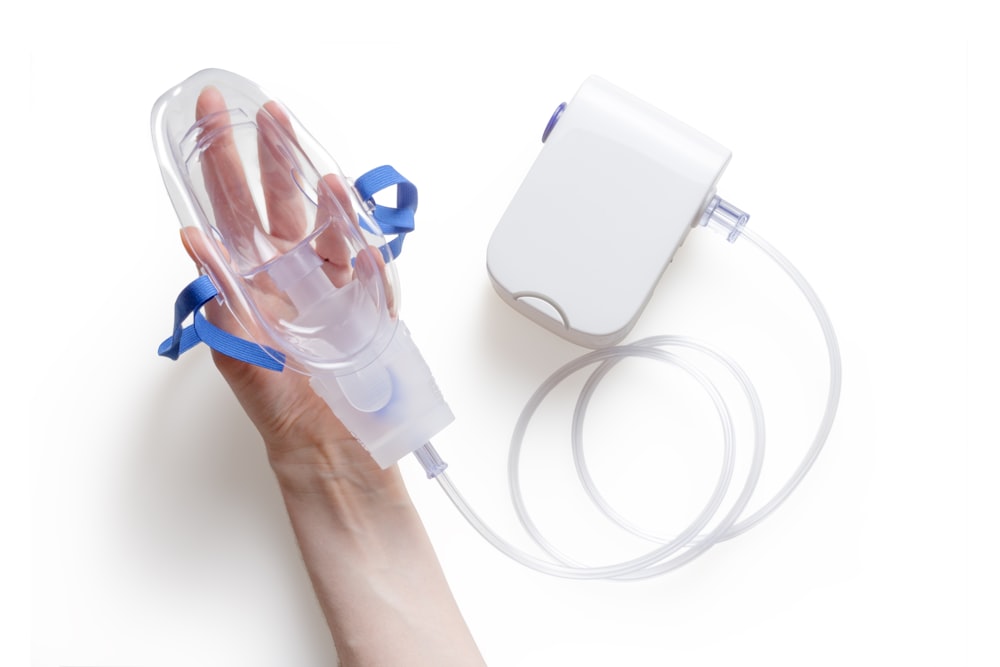How Sleep Apnea Causes Weight Gain:
If you are overweight or obese, sleep apnea could be one of the reasons why. Sleep apnea is a condition where breathing patterns are disrupted during sleep due to airway obstruction. This can lead to excessive daytime drowsiness and can cause people to eat more because they do not feel as well-rested in the morning. You may also suffer from headaches, depression, irritability, fatigue, heart disease, and even high blood pressure if you have untreated sleep apnea. Luckily there are treatments for this under-diagnosed problem that will help you lose weight by treating your symptoms of obstructive sleep apnea!
What is sleep apnea?
Sleep apnea is a condition where breathing patterns are disrupted during sleep due to airway obstruction. This can lead to excessive daytime drowsiness and can cause people to eat more because they do not feel as well-rested in the morning. You may also suffer from headaches, depression, irritability, fatigue, heart disease, and even high blood pressure if you have untreated sleep apnea. Luckily there are treatments for this under-diagnosed problem that will help you lose weight by treating your symptoms of obstructive sleep apnea!

How sleep apnea causes weight gain
When you have sleep apnea, it is likely that your body will be in a state of starvation during the night. Since fat does not get burned off while you are sleeping, this can cause weight gain over time. Not only do people who suffer from obstructive sleep apnea typically eat more at night after they finally wake up to breathe again, but they also tend to snack on unhealthy foods that can add more calories. In addition, your metabolism may slow down in order for you to conserve energy when you are not getting enough oxygen during the night. This is why it is extremely important that anyone who has been diagnosed with sleep apnea starts a healthy diet and exercise program in order to lose weight.

What are the treatments for sleep apnea?
There are many different options when it comes to treating your symptoms of obstructive sleep apnea, so you should talk with your doctor about which option is best for you! One treatment option includes using a machine that blows continuous air into your throat while you sleep at night. This helps keep your airway open and prevents your body from waking up due to a lack of oxygen. Another treatment for sleep apnea that does not require surgery includes wearing a mouthpiece at night, which keeps you relaxed during deep sleep. This is one reason why it is important to talk with your doctor about the right type of treatment if you are diagnosed with obstructive sleep apnea!
Who’s at risk for developing it?
Other factors that can play a role in obstructive sleep apnea include age, gender, and genetics. Sleep apnea is more common than you may think: it affects approximately 22 million people or about 18% of the adult population! The most severe form of this disorder occurs when your throat muscles completely collapse during sleep due to obesity, which makes it harder for air to get into your lungs.
People who are overweight or obese, people that have large neck sizes, and men tend to be at the highest risk of developing obstructive sleep apnea because they typically have more fat around their necks than women do. As you can see, there is no one specific reason why someone may develop this disorder, which is why it is important to talk with your doctor if you are experiencing symptoms of obstructive sleep apnea.
People who snore loudly or have witnessed them gasping for air during the night also tend to be at a higher risk of developing this disorder because they may actually stop breathing all together! If you suspect that someone close to you has sleep apnea, then this might be a sign that they should talk with their doctor about possible treatments.
In order to find out if you have been diagnosed correctly, your doctor will ask several questions and may even want to keep track of certain measurements during the night while you are sleeping! If it is determined that you do in fact suffer from obstructive sleep apnea, then your doctor will help you come up with a treatment plan that is best for your needs.
Once you have been diagnosed correctly and begin receiving the right type of treatment, it is important to make sure that you stick to them in order to lose weight by treating your symptoms of this disorder!
What are the symptoms of sleep apnea?
When you have obstructive sleep apnea, it means that your throat muscles will collapse during the night and block air from getting into your lungs. This can cause loud snoring every time you breathe in and out throughout the night! It also causes periods of not breathing for up to a minute or more which deprives your body of oxygen. If you have been diagnosed with sleep apnea, then it is important to try and get a full night of rest without waking up in order for your body to function properly!
The symptoms include loud snoring every time you take a breath in during the night which may cause breathing pauses. In addition, people who suffer from this disorder often wake up with headaches, feel tired during the day, or may even be at risk of developing heart disease. If you are suffering from any of these symptoms then it is important to discuss them with your doctor to determine if you have sleep apnea!
If left untreated, there can also be serious effects including high blood pressure and other cardiovascular conditions due to lack of oxygen. If you feel that you may have obstructive sleep apnea, then it is important to talk with your doctor as soon as possible about the right type of treatment for this disorder!

Ways to treat sleep apnea
Developing sleep apnea is probably more common than you think.
If you have been diagnosed with obstructive sleep apnea, then there are several different ways to treat this disorder! There is no one specific treatment for everyone since every person who suffers from it can be affected differently.
For example, some people will need a continuous positive airway pressure (CPAP) machine in order to get their breathing back on track during the night. It is important to talk with your doctor about how they can help you come up with a treatment plan that best fits your needs!
Obstructive sleep apnea can cause weight gain
When you have obstructive sleep apnea, it means that your throat muscles will collapse during the night and block air from getting into your lungs. This can cause loud snoring every time you breathe in and out throughout the night! It also causes periods of not breathing for up to a minute or more which deprives your body of oxygen. If you have been diagnosed with sleep apnea, then it is important to try and get a full night of rest without waking up in order for your body to function properly!
When the throat muscles collapse during the night, this can cause an increase in blood pressure which can lead to weight gain over time if left untreated. It also reduces the amount of oxygen that is getting into your body, which can leave you feeling tired throughout the day and even affect your work life!
Continuous positive airway pressure machines
Sleep apnea patients will often be put on continuous positive airway pressure machines.
If you have been diagnosed with obstructive sleep apnea, then it is likely that your doctor will prescribe a continuous positive airway pressure machine in order to help you get the rest that you deserve. This type of treatment involves wearing a mask while sleeping which keeps your throat muscles from collapsing and blocking air from getting into your lungs!
While it can be difficult to get used to wearing a mask when you are sleeping, it is important that you stick with this treatment plan in order to prevent your symptoms from coming back and causing more problems for your overall health!
Obstructive sleep apnoea syndrome
The obstructive sleep apnoea (OSA) syndrome is a common disorder characterized by recurrent episodes of partial or complete obstruction of the upper airways during sleep. During these episodes, there are reductions in airflow and oxygen saturation that lead to disturbances in heart rate, blood pressure, glucose metabolism, and emotional regulation; it has also been suggested that it may result in systemic inflammation.
Obstructive sleep apnoea is very common, with an estimated prevalence of between 20% and 30%. It is more prevalent among men than women (about twice as high), although the proportion of people who are undiagnosed or misdiagnosed as having OSA tends to be higher in women compared with men. In addition, OSA is more common in older adults (the prevalence increasing with age) and also among people who are obese.
The disorder was first described by Roland Roberts in 1966; it has been estimated that his observation led to the development of approximately half of all machines currently used for diagnosing sleep-disordered breathing. The term “sleep apnoea syndrome” was used by Dr. Colin Sullivan in 1978.

Body weight Health risks
When you have obstructive sleep apnea, it means that your throat muscles will collapse during the night and block air from getting into your lungs. This can cause loud snoring every time you breathe in and out throughout the night! It also causes periods of not breathing for up to a minute or more which deprives your body of oxygen acts about sleep apnea
When the throat muscles collapse during the night, this can cause an increase in blood pressure which can lead to weight gain over time if left untreated. It also reduces the amount of oxygen that is getting into your body, which can leave you feeling tired throughout the day and even affect your work life!
Final Thoughts
Obstructive sleep apnea is a disorder that affects your breathing and can cause an increase in blood pressure which leads to weight gain. In order to combat this problem, you should speak with your doctor about the best treatment plan for you. If you have been diagnosed with obstructive sleep apnea then it may be time to talk to your doctor about getting a CPAP machine if other treatments haven’t worked for you!










